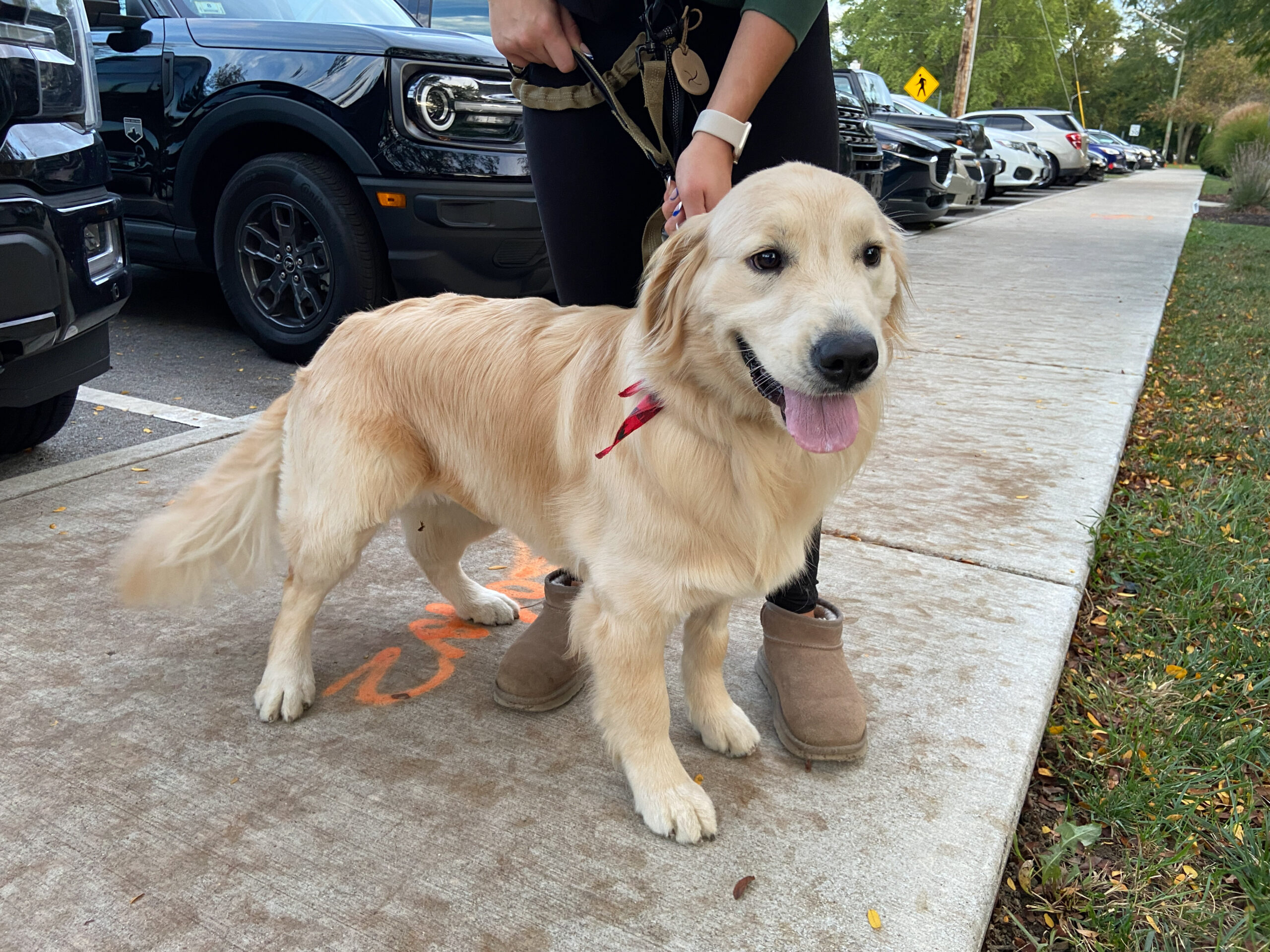Dogs on campus are now restricted from certain areas, including faculty offices. Photo by Jonathan Wang.
ERIKA KOVACH | STAFF REPORTER | ekovach@butler.edu
Effective as of Sept. 16, the university’s Human Resources department has implemented new policies changing where animals can be on campus. The new rules organize animals into four categories: service animals, emotional support animals (ESAs), therapy animals and pets. These guidelines limit where ESAs, therapy animals and pets can go on campus.
Service animals are allowed in classroom and office spaces due to the necessary work and tasks they perform. The new policy now allows for specific accommodations for ESAs in the classroom with approval.
Gianna Cassin, a senior peace and conflict studies and Spanish double major, said she thought potential accommodations for ESAs were beneficial.
“I think it’s important to note that not all ESAs are service animals, but some can be,” Cassin said. “Considering how dog-centered Butler is, I think it’s great to implement [new] policies that allow animals to be more involved on campus. Pets shouldn’t be allowed in all spaces, [but it’s] important for service animals to focus and be able to do their jobs.”
New policies have also imposed limitations on therapy dogs, which have become a familiar part of Butler’s Counseling and Consultation Services (CCS). The policy outlines that therapy animals are not permitted in campus facilities other than those in which they are being utilized through lessons or outreach initiatives.
Associate Director of CCS Casiana Warfield said that this has led the CCS team to be more intentional about where their animals are, only bringing them outside of the CCS offices into other buildings if they’re specifically a part of outreach or similar programs.
“In general, our protocol has not changed much,” Warfield said. “We have always made sure to have others’ consent before bringing the therapy dogs into spaces and try to be mindful of their impact on others.”
Beyond these exceptions for animals in classrooms, regular pets are no longer allowed in academic buildings.
The policy states, “Pets may be allowed on campus grounds (but never in campus buildings),” and “If there is a bona fide educational purpose for bringing an animal to class, and that purpose is clearly delineated in the class syllabus as a central topic in the class, then it may be permissible.”
This new addition comes to the dismay of many who have often enjoyed seeing pets around the office and the classroom.
Sunny Romack, senior lecturer and director of peer tutoring, said she was surprised and disappointed to hear about the new changes.
“I have always loved our pets on campus — I used to bring my little dog to the Writers’ Studio before she passed away, and students loved her,” Romack said. “She provided a great deal of comfort and support, especially to students who were missing their pets. Since I lost her, I have been overjoyed to encounter a dog in the hallways, because it helps me feel better to be near animals.”
Many faculty pets have become well-loved through visiting campus and staying in faculty offices throughout the day.
“I understand concerns about allergies, and of course, some people are genuinely afraid of dogs,” Romack said. “I can see a policy forbidding pets in classrooms or other public spaces, where people might be disturbed by them. But faculty offices seem like a safe place for a pet, and I do think students who love dogs and find comfort in them would enjoy having a dog to visit in their professor’s office.”
Despite these policies regarding other animals, no changes have been imposed regarding Butler Blue and the Live Mascot program.
The latest university policy regarding animals on campus is available to view publicly. All questions regarding service animals and ESAs can be directed to SDS. Employees wishing to request a workplace disability-related accommodation regarding animals can contact HR.



